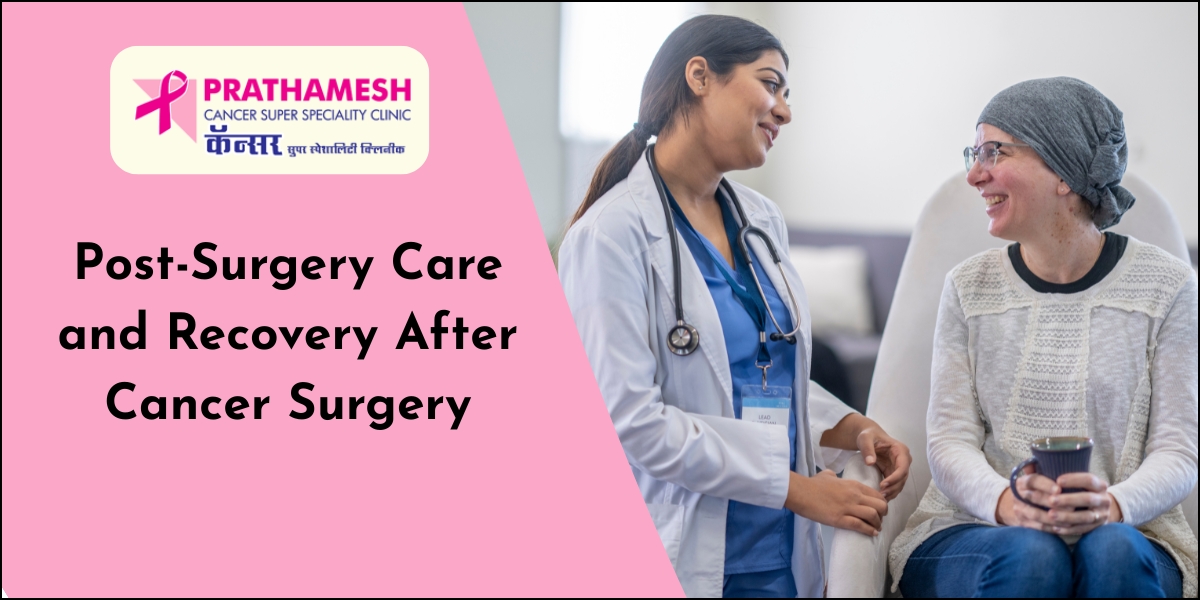Successfully completing cancer surgery is a monumental step in your healing journey. But what comes next is just as crucial: the recovery period. Post-surgery care is the foundation upon which your long-term health is built. It’s a time for your body to heal, your strength to return, and your spirit to mend. While the path can feel daunting, knowing what to expect and how to manage it can empower you and significantly improve your recovery experience.
Post-Surgery Care After Cancer Surgery
1. The Immediate Aftermath: Hospital Care
Right after surgery, you will be in a recovery room where medical staff will closely monitor your vital signs. Managing pain is a top priority. Don’t hesitate to communicate your discomfort to your nurses; effective pain control is not a luxury—it’s essential for healing and allows you to move more comfortably, which prevents complications. You may have tubes or drains in place to remove fluids from the surgical site, which are typically removed before you go home.
2. The Home Stretch: Continuing Care at Home
Once you’re discharged, the real work begins. Your surgical team will provide specific instructions tailored to your procedure, but some universal tips apply:
-
Incision Care: Keep your incision clean and dry. Gently wash with soap and water as directed and check daily for signs of infection like redness, swelling, or unusual drainage.
-
Pain Management: Take prescribed medications on schedule to stay ahead of the pain. As you heal, your doctor will help you transition to over-the-counter options.
-
Nutrition is Medicine: Your body needs fuel to repair itself. Focus on a balanced diet rich in lean protein, fruits, vegetables, and whole grains. Proper nutrition supports tissue repair and boosts your energy levels.
-
Move Gently, Rest Deeply: Balance is key. While ample rest is vital, so is gentle movement. Short walks around your home prevent blood clots, improve circulation, and help rebuild your strength. Listen to your body and avoid strenuous activities.
3. The Emotional Journey
Recovery isn’t just physical. It’s normal to experience a rollercoaster of emotions—relief, anxiety, frustration, or sadness. Be patient with yourself. Lean on your support system of family and friends. Consider joining a support group where you can connect with others who understand your experience. Don’t underestimate the power of speaking with a therapist or counselor to process this life-changing event.
4. Looking Ahead: Follow-Up Appointments
Your recovery is an ongoing process that extends for months. Attending all scheduled follow-up appointments is non-negotiable. These visits allow your surgeon to monitor your healing, address any concerns, and discuss the next steps in your overall cancer treatment plan, which may include adjuvant therapies like chemotherapy or radiation.
Remember, every person’s recovery is unique. Patience, self-compassion, and following your medical team’s guidance are your most powerful tools for healing.
Visit Dr. Ashish Pokharkar – Cancer Surgeon in Pune, Maharashtra
For those seeking expert care in Pune, Dr. Ashish Pokharkar is a highly regarded cancer surgeon in Pune known for his precision and compassionate patient approach. With extensive experience in performing complex cancer surgeries.
Frequently Asked Questions (FAQs)
1. How long does it take to recover from cancer surgery?
Recovery time varies widely based on the surgery type, your overall health, and the cancer’s stage. It can range from a few weeks for minor procedures to several months for major operations.
2. What are the signs of infection after surgery?
Watch for increased redness, swelling, warmth at the incision site, pus or foul-smelling discharge, a fever over 101°F (38.3°C), or worsening pain.
3. When can I return to work after cancer surgery?
This depends on your recovery progress and job demands. Sedentary jobs may allow a return in a few weeks, while physically demanding roles may require several months. Always follow your doctor’s clearance.
4. What foods help you heal faster after surgery?
Focus on protein-rich foods (lean meat, fish, eggs, beans), Vitamin C (citrus fruits, bell peppers), and Zinc (nuts, seeds) to support tissue repair and immune function.
5. Is it normal to feel tired after cancer surgery?
Yes, fatigue is one of the most common side effects. Your body is using immense energy to heal. Rest is crucial, and your energy will gradually return over weeks or months.





